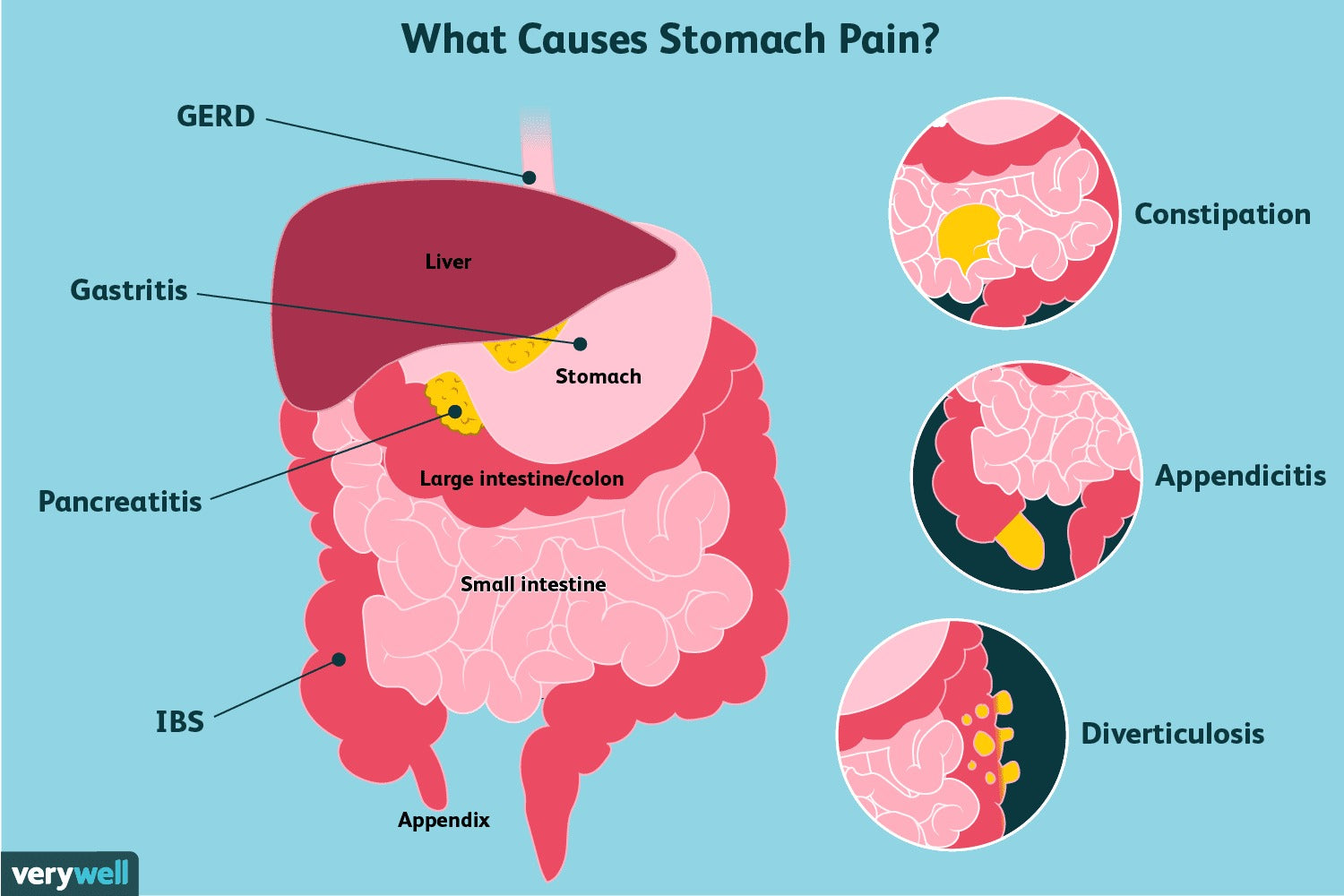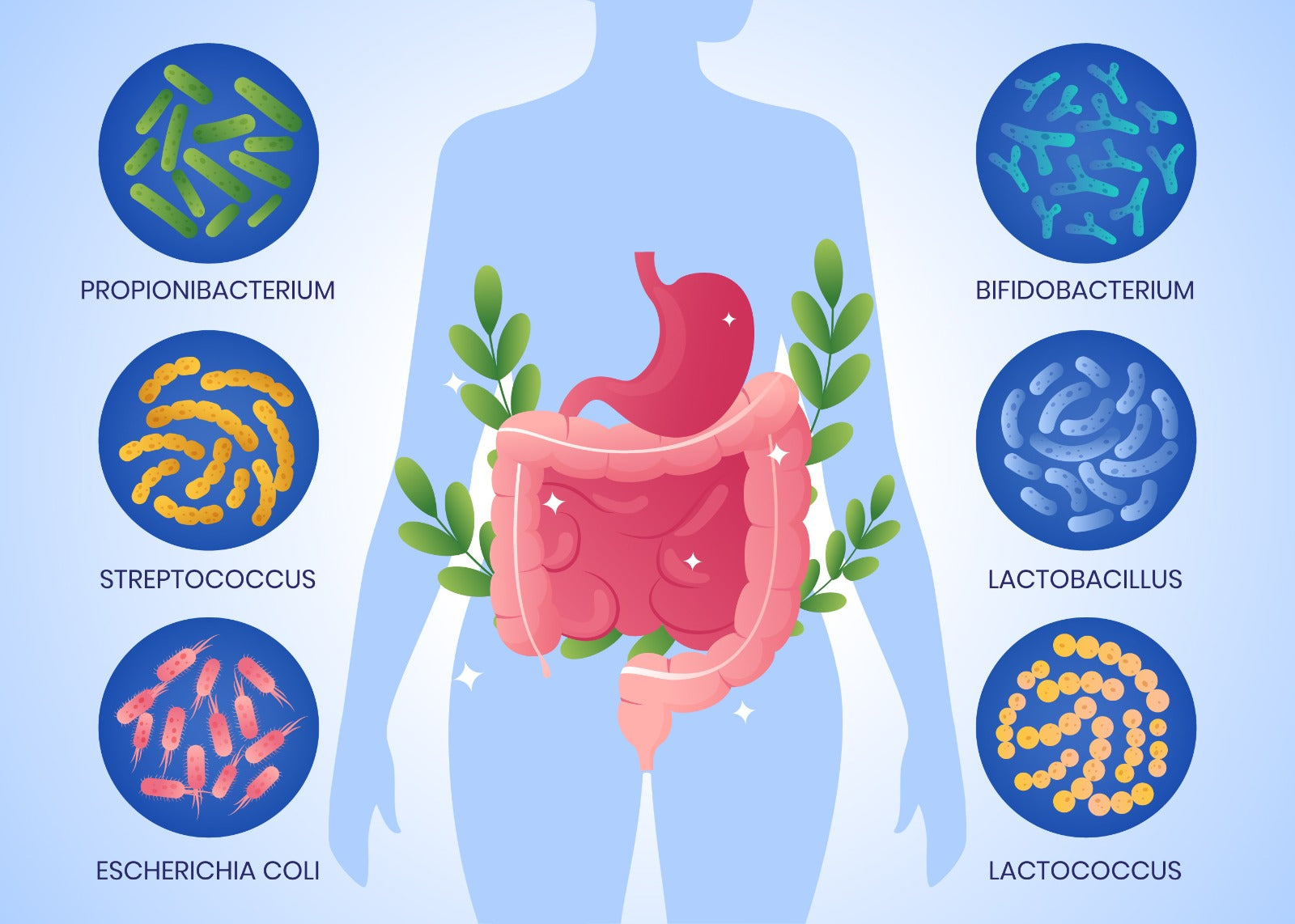Digestive Health
Bloated Stomach and Back Pain: How Gas Can Often Cause Back Pain
Excessive gas in the digestive tract can be excruciating, frequently the result of abdominal bloating and back pain. When gas is trapped gas which applies pressure to the abdominal walls, this can sometimes make its way to the back and become painful (or very sharp cramping) in nature. Fullness as a symptom is one of the most reported similar to, in people feeling like they have a ball in their stomach and a lump under their back. These symptoms can further impact quality of life, daily activities. These simple but effective steps for eating less, staying hydrated, exercising and stress management can also be the best ways to prevent bloating and back pain secondary to gas.
7 Worst Foods for Gut Health: Know & Avoid Them
Optimal gut health is yet the most significant contributor to the overall health and, thus, should be maintained regularly. The digestive tract has the function of taking and distributing nutrients, protecting the body against infections, and it can greatly influence the mental health of a person and even mental health. Therefore, some foods may cause implications like cramps, acid reflux, or some other diseases that may be a show of damaged digestion. In this comprehensive guide, we will explore the 7 worst foods for gut health and discuss why they should be avoided or consumed in moderation. By understanding these culprits, we can make informed decisions about our diet and promote better digestive health.
10 Best Juices for Digestion You Must Try
A good digestion system serves as the basis for general health and wellness. Optimal functioning of the digestive system manifests itself through a person's energy and immunity levels and even mental clarity, amidst the hustle and bustle of life today. It is poor eating habits, stress, and physical inactivity that most often produce symptoms like belching, constipation, or indigestion of food for most people. Luckily, whenever most people adopt juicing as part of their diet, it goes a long way in boosting gut health, being a very simple but effective effort. In this blog, we’ll share a list of best...
How to Clean Gut: 7 Food Items to Help You Get Rid Of Gut Health
In this blog, we explore how to clean gut effectively as well as bring to you seven food items that would be so helpful that you can see a significant change in your gut health. A gut cleanse is a genetic treatment option that can be practised through a diet alone. The topic includes seven food items that work well for gut cleansing and identifies various practices that make it safe as well as very effective in improving the gut. Such an approach enhances digestion easily by being practical enough while exploring this idea of diet, gut health relationship.
How to Clean Your Stomach and Intestines Naturally: 7 Daily Tricks!
A clean and healthy digestive system helps to build a healthy body. Your stomach and intestines play a role as the main reservoirs for nutrients and the toilets for toxins removed from your body. Poor diets, stress, and a lazy lifestyle can give rise to piling up wastes, which further cause bloating, indigestion, or other health conditions. The best news is you can cleanse your stomach and intestines naturally by simple daily habits. This article identifies how to clean your stomach and intestines naturally with 7 simple tricks while keeping focus on gut-friendly microbiomes. It also delves into ways to...
Understanding Metabolic Syndrome: Symptoms, Causes and Treatments
Metabolic syndrome is a collection of conditions such as increased blood pressure, diabetes, abnormal levels of cholesterol, and fat in the abdomen, increasing the chances of getting heart problems, strokes, and type 2 diabetes. Symptoms may be minor or not seen early in progress, but abdominal obesity, high blood pressure, and high blood sugar are indicators that point toward the condition. Causes include multiple factors, such as genetic predisposition, obesity, physical inactivity, unhealthy diets, and merely aging. A diagnosis is established when three of the five major risk components are met.
Common Bowel Movement Issues and How to Address Them
Relief Bloating: How to Identify Bloating Causes and Choose the Right Foods
Abdominal Pain and Constipation: Understanding the Causes and Solution
10 Gastrointestinal Disease Symptoms You Should Never Ignore
Gastrointestinal diseases refer to the array of disorders that affect the digestive tract either partially or fully. This includes the stomach, intestines, and colon. Ignoring the symptoms increases the risk of major complications, thus making it essential to start early diagnosis and treatment. Persistent abdominal pain, change in bowel habits, unexplained weight loss, and difficulty swallowing or swallowing issues are the most common symptoms of gastrointestinal diseases. However, disease prevention through proper treatment of the symptoms forms the basis of knowing how to seek proper care. Here is a list of symptoms to watch out for.
Types of Diarrhea and Their Impact on Gut Health
Diarrhea is a frequent gastrointestinal disorder that may be categorized as acute, chronic, or functional. Acute diarrhea is transient, usually secondary to infection or food poisoning, whereas chronic diarrhea continues for more than four weeks and is commonly associated with such conditions as IBS or IBD. Functional diarrhea, often a function of diet or stress, creates irregular bowel movements with no identifiable disease. All of the categories affect intestinal health differently and affect nutrient absorption, gut bacteria, and will potentially cause malnutrition or dehydration if not adequately managed.
Constipation Treatment: Over-the-Counter Options and Their Effectiveness
One of the most common causes is because of diet, lifestyle, and medical conditions. Well, among the over-the-counter solutions in common practice, there are laxatives, stool softeners, and an enema. Laxative use depends on symptom intensity and so does prevention; proper intake of dietary fibers with water and regular physical exercises is a good basis to keep the digestive system long term healthy.
























